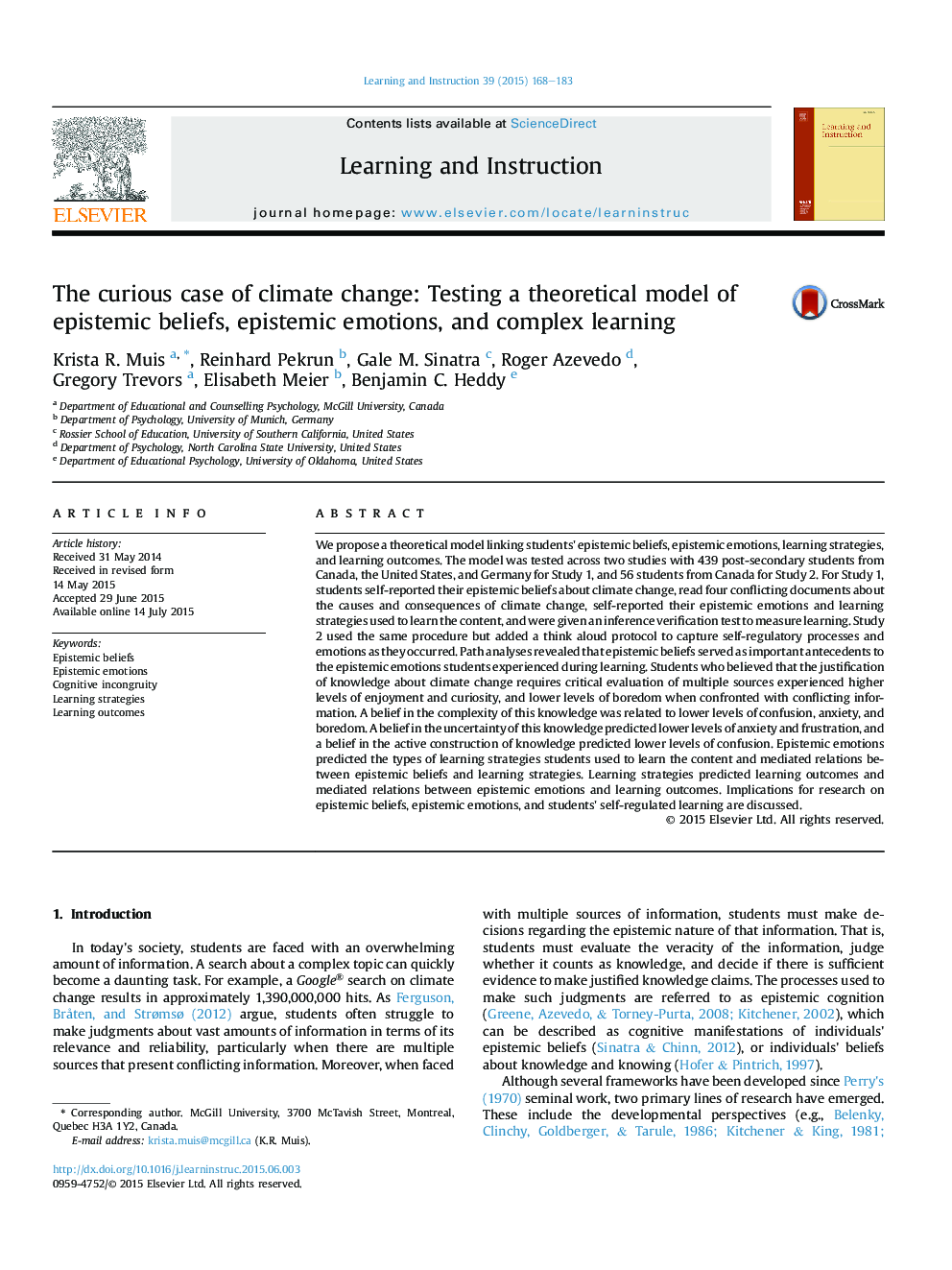| کد مقاله | کد نشریه | سال انتشار | مقاله انگلیسی | نسخه تمام متن |
|---|---|---|---|---|
| 365512 | 621197 | 2015 | 16 صفحه PDF | دانلود رایگان |
• We propose a model of epistemic beliefs, epistemic emotions, learning strategies, and learning outcomes.
• Across two studies, students self-reported their epistemic beliefs about climate change.
• Four conflicting documents about the causes and benefits of climate change were presented.
• Epistemic beliefs predicted epistemic emotions, which predicted learning strategies.
• Epistemic emotions predicted learning strategies, and learning strategies predicted achievement.
We propose a theoretical model linking students' epistemic beliefs, epistemic emotions, learning strategies, and learning outcomes. The model was tested across two studies with 439 post-secondary students from Canada, the United States, and Germany for Study 1, and 56 students from Canada for Study 2. For Study 1, students self-reported their epistemic beliefs about climate change, read four conflicting documents about the causes and consequences of climate change, self-reported their epistemic emotions and learning strategies used to learn the content, and were given an inference verification test to measure learning. Study 2 used the same procedure but added a think aloud protocol to capture self-regulatory processes and emotions as they occurred. Path analyses revealed that epistemic beliefs served as important antecedents to the epistemic emotions students experienced during learning. Students who believed that the justification of knowledge about climate change requires critical evaluation of multiple sources experienced higher levels of enjoyment and curiosity, and lower levels of boredom when confronted with conflicting information. A belief in the complexity of this knowledge was related to lower levels of confusion, anxiety, and boredom. A belief in the uncertainty of this knowledge predicted lower levels of anxiety and frustration, and a belief in the active construction of knowledge predicted lower levels of confusion. Epistemic emotions predicted the types of learning strategies students used to learn the content and mediated relations between epistemic beliefs and learning strategies. Learning strategies predicted learning outcomes and mediated relations between epistemic emotions and learning outcomes. Implications for research on epistemic beliefs, epistemic emotions, and students' self-regulated learning are discussed.
Journal: Learning and Instruction - Volume 39, October 2015, Pages 168–183
